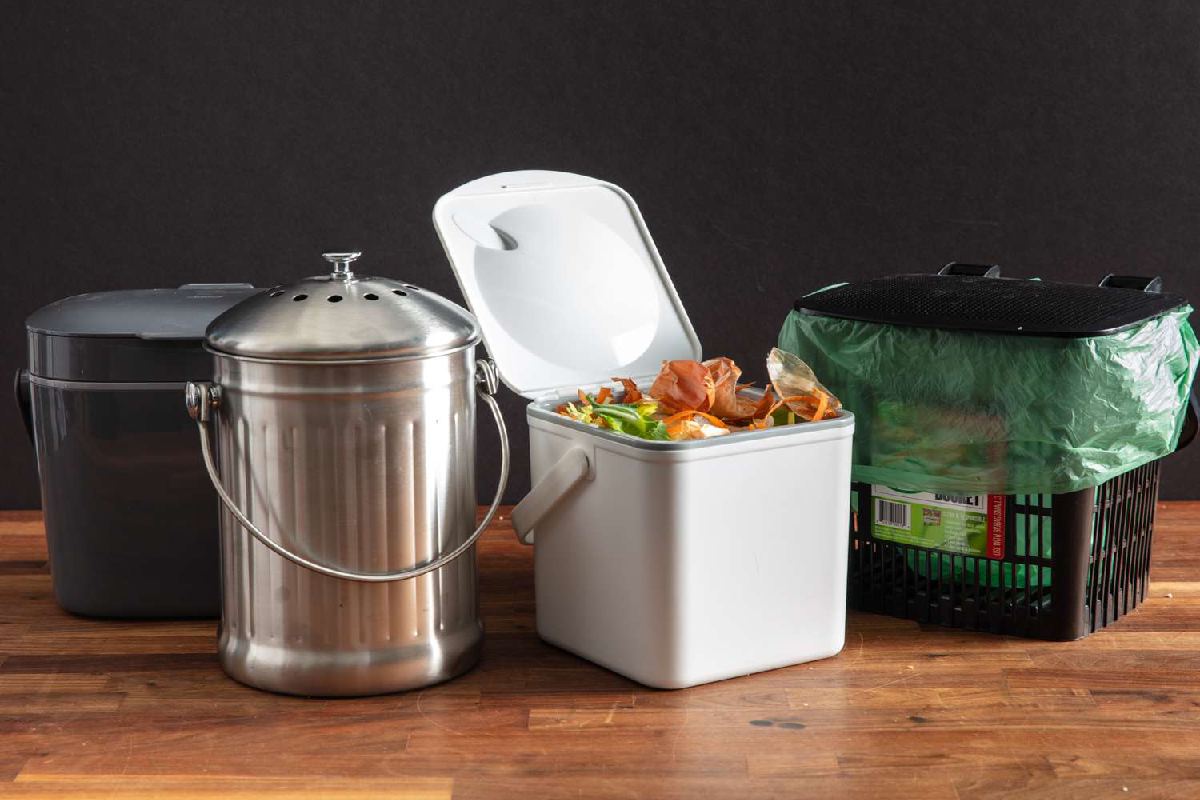

It used to be pretty common to see people growing food produce in their gardens. Unfortunately it seems the convenience of supermarkets, and the reality that many of us just don’t have the space, meant that most of us stopped being garden farmers and opted to buy everything instead.
There does seem to be a bit of a trend emerging, however. People are starting to grow more of their own food again. Whether it’s a small windowsill box for herbs, a patch of garden designated to raised beds, or even an allotment, more people are going for homegrown, which is great for a whole host of reasons. As people go down the garden path, so to speak, the benefits of composting become more apparent.
Composting is a great way to reduce your environmental footprint because you can use most of your kitchen waste. This stops a fair amount of waste reaching landfill, and many councils in the United Kingdom offer a separate food waste collection service, along with glass and can recycling, of course. This is great for everyone, but gardeners can use this food waste to create a product that gives their garden a great source of nutrients. It’s also a great way to engage with your garden and potentially close some gaps in the nutrient cycle. If you have been looking to start your own compost bin then this article will explain the process and see you well on your way.
Table of Contents
It’s all about decomposition. Compost bins are little ecosystems filled with things like woodlice, worms, small insects, fungi and bacteria all eating, mixing and generally breaking down the materials you put in.
It is possible to just pile a few things up and leave mother nature to do her thing. However, there are a few compost bins that can make the process a bit more efficient. You can opt for a shop-bought compost bin, or get handy and make your own. Either way, the first thing you want to do is pick a spot that gets some sunlight on it.
Once you’ve got your location sorted you just need to start filling it up. Ideally the compost bin wants to contain a balance of materials – greens and browns – to provide the ideal conditions for decomposition. The sort of things you can put on the compost pile include:
Aim to layer the different materials throughout the compost bin, as opposed to lumping everything on there. If you have bigger items like cardboard or wood then it is a good idea to get a shredder, or at least try to break up big pieces. Take a bit of time at this stage to do things properly and you will be rewarded in the long run.
Once everything is layered, give the whole thing a bit of a wet down with some water. You don’t need to drench it, but just a bit of added moisture helps to get everything going.
Composting takes time, so things are not going to decompose overnight. There is also a bit of work involved in keeping things going too. The compost heap should be turned over every now and then to make sure it is properly aerated. After a while you should notice the compost bin doing it’s work – it’s a beautiful sight.
It’s best to avoid putting in meat scraps, dairy and other animal products in there. These things can decompose, but may attract unwanted pests and also potentially cause a bit of an unpleasant smell. Compost should not really smell like anything other than compost, so rotten meat is not an ideal thing to add. If you are interested in cutting down on this type of food waste and getting something to use in the garden then check out bokashi bins online.
Do not put any plastic or metal into your compost bin!
Composting is a rewarding part of the gardening experience. Starting a compost bin at home is easy, and it has numerous benefits. It is a great way to reduce the amount of organic waste that ends up in landfill and reduce your carbon footprint at the same time.
The process can also save money too, as shop board compost can be expensive to buy. Getting a good compost bin is a cost-effective way for anyone to improve soil quality and add some organic nutrients into the soil. This process helps keep plants healthy and may even lead to bigger and better harvests from the veg patch.
In the relentless pursuit of entrepreneurial success, it’s easy to overlook the most vital asset—yourself.… Read More
A barrel sauna isn’t just a visually striking wellness addition—it’s an efficient and highly functional… Read More
Technology is an integral part of most teenagers' lives today. While devices and social media… Read More
LASIK is one of the most popular vision correction surgeries that offers you freedom from… Read More
Plumbing issues can arise unexpectedly, and understanding the costs involved is crucial for homeowners and… Read More
Skin aging is often associated with external factors like sun exposure and pollution, but inflammation… Read More